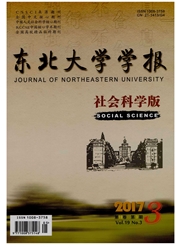

 中文摘要:
中文摘要:
纳米技术的发展面临着巨大的不确定性的挑战。在不确定性状态下,对纳米技术的评估面临着"科林格里奇"困境。为此,欧美学术界在传统技术评估的基础上,提出了远景评估、建构性评估及实时技术评估等三种评估方法。然而这些评估模式或者试图推测纳米技术的未来,或者着眼于从过程中控制纳米技术的发展方向,均带有一定的局限性。而基于中国哲学的面向行动的可行性评估方法,具有原位性(具体、因地制宜)、动态性(即时性、与时俱进)、整体性等方面的特征,在面对纳米技术的不确定性时,强调要与不确定性共存而不是回避或者设法控制不确定性,这对于解决"科林格里奇"困境具有一定的指导意义。
 英文摘要:
英文摘要:
The development of nanotechnology faces great challenges of uncertainty.Under the condition of uncertainty,the assessment of nanotechnology might be confronted with Collingridge's dilemma. Based on the traditional technological assessment,scholars in Europe and USA proposed three approaches—vision assessment,constructive assessment and real-time assessment. However,such technological assessment models have their own limitations such as trying to predict the future of nanotechnology and controlling the directions of nanotechnology development. Based on the Chinese philosophy, the feasibility assessment of nanotechnology is action-oriented and characterized by in situ( acting according to circumstances),dynamics( instantaneity and advance with the times) and integrality. Faced with the uncertainty of nanotechnology,the feasibility assessment of nanotechnology emphasizes the coexistence with uncertainty rather than avoiding or controlling it,which is of significance to tackle Collingridge's dilemma.
 同期刊论文项目
同期刊论文项目
 同项目期刊论文
同项目期刊论文
 期刊信息
期刊信息
